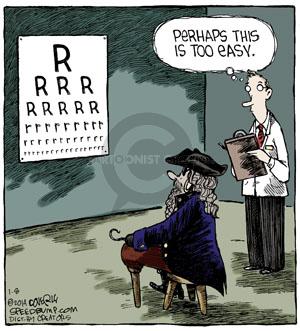A peculiar arrogance accrues to people who cannot recognize the diversity of human impulses, and who feel superior because they do not lapse into behaviours that don't tempt them in the first place. People disgusted by sexual predators say smugly that they don't pursue the sexual favours of children, without acknowledging that they don't find children sexually attractive. Those who do not tend toward chemical dependency express disdain for addicts; people with small appetites patronize the morbidly obese. A hundred years ago, my homosexuality would have landed me in jail, and I am fortunate to live in a place and an era that allow me to be true to myself. If I'd had to deny my longings, it would have been a different experience from that of straight people who have no such longings to deny. Spending time with criminals, I have seen that while many have poor impulse control or are weak or stupid or destructive, many others are driven by a compulsion. Some manifest enormous courage by refraining from theft although the wish to steal burns in them every minute, and their restraint of emotions they cannot eradicate is categorically different from the lawfulness of people who find the idea of thievery distasteful.This quote seems broadly applicable to many things in life and I expect to be referring back to it many times in the future, but the first thing that comes to mind is to wonder if it applies to "Don't let it bother you."
Example: one day last year, I was walking down the street when some random lady walked up to me and said "Where did you get such ugly shoes?" When I was a preteen or teenager, this would have devastated me, but now that I'm older and wise, I simply don't let things like that bother me. Not letting things like this bother me is a much better way to live life! Everyone should do it!
Except, as you'll recognize if you've been reading me for a while, this isn't an example of not letting something bother me. Rather, this is an example of something that never bothered me in the first place. As I blogged about when it happened, Shoe-Hating Lady's comment didn't bother me because she clearly had no fashion credibility, I've received a critical mass of external validation for those particular shoes, and she phrased her comment in a way that set me up perfectly for a bright and witty comeback. In comparison, when people would make negative comments about my appearance when I was young, they were people with more fashion credibility than me, I hadn't received any external validation, and I couldn't come up with a good comeback.
There was no skill or effort or virtue involved in my not being bothered by Shoe-Hating Lady's comments. I didn't transcend any bad feelings or will myself into some positive or zen emotional place, it's just that the bother never happened.
Sometimes, especially in advice column forums but in other places as well, I've noticed a certain soupçon of smugness/arrogance from some people about not letting things bother them. Rather than helping brainstorm specific solutions or alternate approaches for the letterwriters, their contributions are always "You shouldn't let it bother you" or "You should get past it" or "You shouldn't allow yourself to feel that way." But if you ask them for specifics on how to do that, they have nothing useful to contribute, or they just tell you to not let it bother you.
So I find myself wondering if some of the people who say they don't let things bother them are rather simply not bothered by those things. They're not actually actively doing anything to make the thing not bother them, it just simply happens to be a thing that doesn't bother them.
It also occurs to me that something similar might be happening with some of the cases where people think they've matured and outgrown feelings or priorities they used to have.
For example, when I was in middle school, it was very important to have a circle of friends who are near you at all times. It was very important not to wear the wrong clothes. It was very important to be familiar with the correct aspects of pop culture. I put a lot of time and energy into meeting all these criteria and never being seen to set a foot wrong. However, now that I'm older and wiser, I know that these things aren't really important and I do as I like rather than follow trends.
Except that this change has nothing to do with me and everything to do with how people treat me. In middle school, people would actively work to make my life miserable of they saw me without friends near me, or in the wrong clothes, or indulging in the wrong pop culture. And, because of the school setting, the people who did this were able to make my life miserable for seven hours a day, five days a week, and I couldn't walk away from them. Now in adult life, the vast majority of people simply don't care, and those who do can be easily avoided. This has nothing to do with my own maturity or wisdom, and everything to do with my day-to-day context.
So I find myself wondering if other people who say the same things did in fact become more mature and wiser, or if they're just removed from the situation where the importance of these things was artificially inflated.

